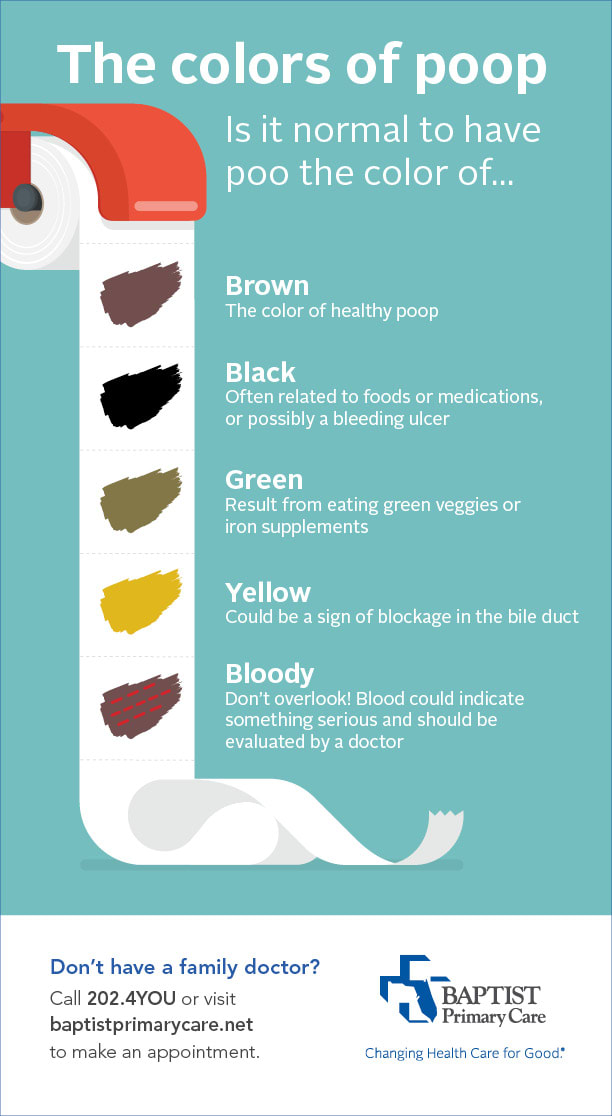The scoop on poop
We're serious...you should take note of the color of your bowel movements.
Article Author: Johnny Woodhouse
Article Date:

In the 1993 film “Jurassic Park,” Dr. Ellie Sattler, a paleobotanist, can’t be sure what ails a sick Triceratops until she examines the dinosaur’s droppings.
Fortunately, that's not the case with humans.

What different poop colors mean
The color and consistency of your stool is one way doctors can tell if your gastrointestinal tract is functioning properly or not.
Brown poop
Brown is the color of healthy stool. Any other color could point to a health issue.
Black poop
Most cases of black stool are from eating dark foods (such as black licorice) or from taking iron supplements. The most common condition that causes black bowel movements is a bleeding ulcer.
Green poop
Green comes from eating lots of, you guessed it, green vegetables. Taking iron supplements can also turn your poop green.
Yellow poop
Light yellow/fatty stool indicates a lack of bile, a fluid that digests fats, which could be a sign of a blockage in the bile duct.
Red/bloody poop
Bloody poop indicates bleeding in the lower area of the colon, which is a sign of inflammatory bowel disease. If blood in the stool is suspected, you should contact your physician as soon as possible.
"Bloody stools should not be assumed to be hemorrhoids and should definitely be medically evaluated," said family physician Patricia Calhoun, MD, of Baptist Primary Care. "Black tarry stools can sometimes indicate a condition called melena, which is associated with bleeding from a point higher up in the GI tract."
Talk to your doctor if you have concerns
If you need a primary care physician to evaluate your overall health, call 904.202.4YOU (904.202.4968), or visit Baptist Primary Care to make an appointment.



